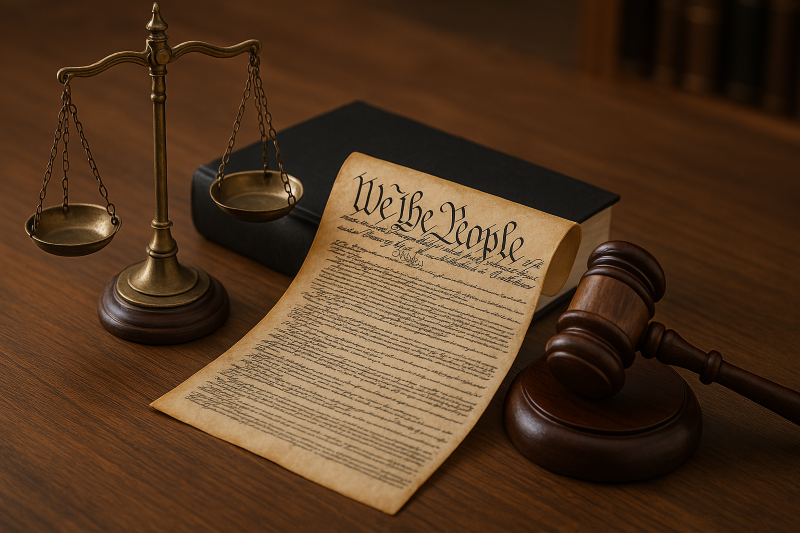
Many people assume that if they're involved in any legal trouble, they’re automatically entitled to a free lawyer. But the reality is more nuanced, especially when distinguishing between criminal and civil matters. Let’s clear up some misconceptions and dive into when you actually have a right to court-appointed counsel.
The Sixth Amendment and Criminal Cases
The U.S. Constitution guarantees the right to legal representation—but only in certain circumstances. Under the Sixth Amendment, “In all criminal prosecutions, the accused shall enjoy the right…to have the Assistance of Counsel for his defence.” This right applies only in criminal prosecutions, not civil cases.
This constitutional protection was originally limited to federal cases. However, in the landmark case Gideon v. Wainwright, 372 U.S. 335 (1963), the U.S. Supreme Court extended this right to defendants in state felony prosecutions. This means that if you’re charged with a crime and cannot afford a lawyer, the court is required to appoint one for you—commonly known as a public defender.
No Right to Counsel in Civil Cases
Civil lawsuits—where parties fight over money, contracts, or property—do not come with a constitutional right to a free lawyer. This includes matters such as landlord-tenant disputes, family law cases, or most business litigation.
If you're involved in a civil case and can't afford an attorney, your options are limited. You might seek help from legal aid organizations, which provide free or low-cost legal services. However, these organizations often have limited resources and strict eligibility requirements, making access difficult for many.
While some attorneys may take civil cases on a pro bono basis (meaning they work for free), this is the exception rather than the rule.
Bottom Line
You're only guaranteed a free lawyer if you're facing criminal charges. If you're in a civil dispute—no matter how serious it feels—you’re responsible for finding and paying for your own legal representation unless you qualify for legal aid. The takeaway: if your liberty is on the line, the Constitution protects your right to a lawyer. If it’s money you’re fighting over, you’re largely on your own.
All information provided on Silblawfirm.com (hereinafter "website") is provided for informational purposes only, and is not intended to be used for legal advice. Users of this website should not take any actions or refrain from taking any actions based upon content or information on this website. Users of this site should contact a licensed Texas attorney for a full and complete review of their legal issues.
